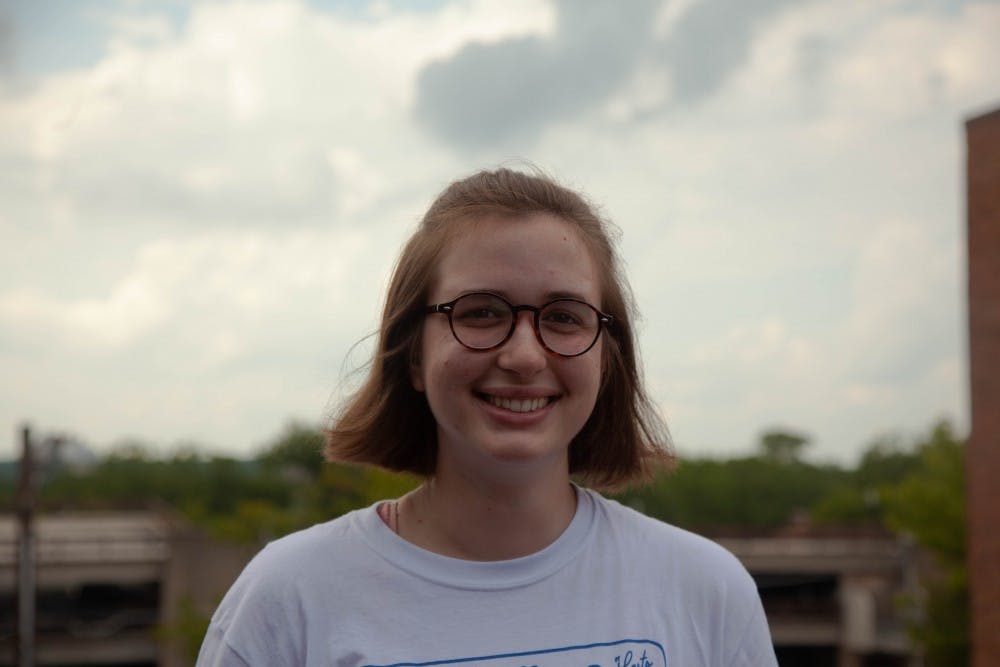Pogarcic said she and DTH General Manager Erica Perel came together to form the OC Report after Pogarcic got feedback from long-term Orange County residents about what they wanted out of the paper.
She said despite her desk’s regular coverage of town council meetings and local business trends, she heard many concerns that the paper wasn’t meeting the needs of local residents in Chapel Hill, Carrboro and the surrounding area.
So, she set out into uncharted waters at the DTH to offer an entirely new way to reach Orange County readers with the OC Report.
“It's a rethinking of how we deliver our news and in what format we do it, and just kind of how that can aid in different forms that stories can take, depending on what they're intended to do and who they're intended for,” Pogarcic said.
She said her time restructuring how the city and state desk reached readers and met their news needs has given her more ideas on how other desks can adapt their reporting not only to benefit local readers, but also to give reporters more well-rounded experience and people on campus a sense of community.
As the daughter of an immigrant family, Pogarcic said she knows how intimidating it is to navigate college life, and she said she understands where students are coming from when they say the DTH is not adequately inclusive or accessible.
“Diversity in terms of skin color is really important because our newsroom is really white and the stories we tell are only going to be as diverse and interesting as the people who work for us,” Pogarcic said. “But I also think it goes beyond that to like, you know, all backgrounds, such as economic diversity. People need to feel comfortable working for us no matter what background they come from.”
She said even in the newsroom, she hears conversations where people from different backgrounds bring such different perspectives and insight to stories. She said the DTH needs more people from all kinds of backgrounds to facilitate more well-rounded reporting.
“It helps us in terms of trust with our community and building readership because nobody's going to want to read the DTH if they don't see themselves represented in it.”
She said fostering an inclusive and diverse area of coverage needed to start by involving the campus community, so she sought out campus organizations who had a common goal of helping students become more informed when they vote.
Pogarcic worked with Mi Pueblo — a Latinx based student organization which raises awareness around Latinx issues, culture, and heritage at UNC and the surrounding community — to encourage students to vote in the March 2020 primaries.
But to help students vote, Pogarcic and members of Mi Pueblo agreed on one crucial thing: students need to first be informed.
To get the day's news and headlines in your inbox each morning, sign up for our email newsletters.
Pogarcic then set out to find where the gaps were in voting information, whether it was how to vote, which positions were up for election or even how to navigate through jargon in the political sphere.
“We found that people know more about national elections, which is to be expected,” Pogarcic said. “And when it came to local and state elections, they just didn't know why they mattered. They didn't know who was on the ballot. So that was a big signal to us that maybe the stories are being written in a very inaccessible way.”
She identified the problem. Then came the solution: Tar Heels Vote — The Daily Tar Heel Election Center.
Pogarcic said it can be intimidating for many first-time voters to read through blocks of text and try to decipher what’s important, so she adapted the way the city and state desk covers elections to make DTH election coverage more accessible.
“If you go to Politico and try to see where the presidential candidates stand on issues, they'll have graphics, they don't necessarily have 1,000 word investigative pieces,” Pogarcic said. “That's something that I think we're being slow to adapt to. But I think we're really making steps in that direction. And I'm really excited to see where we go in November.”
Pogarcic said this move to incorporate alternative storytelling channels should include video format and more accessible, interactive multimedia platforms to meet readers where they are.
She said her plan will also give student reporters more well-rounded experience producing multimedia content that professional news organizations will value when they leave UNC for internships and careers in journalism.
“We have the resources and the expertise to be able to do stuff like that more often, and it's also what's expected, honestly, of journalists now that are going into the field,” Pogarcic said. “You can't just know how to report for print and online. You need to have all those multifaceted skills, and I think that there's nothing stopping us from being able to do that. We just need to be encouraged more. And that's something that I would want to make a priority and an emphasis on if I were editor.”




